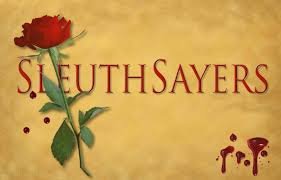Back in the 1990s I stumbled across a book that changed the way I think about character—literary and real-life characters. The book was a little something called We’ve Had a 100 Years of Psychotherapy—And the World’s Getting Worse. It’s a series of conversations between a journalist, Michael Ventura, and the great Jungian psychologist, James Hillman.
I’ve talked about Ventura before on this blog. He wrote what is probably the best essay I’ve ever read on the secret of a consistent writing practice. I call it the amazing essay ever writer must read. The late Hillman was new to me in the 1990s, but he’s still a legendary figure in psychology circles. He even created his own tarot deck, which people use to this day.
This is 14 months old.
When the two men start talking, it gets pretty deep very quickly. But one portion of their conversation blew my mind. It has to do with how we become the people we are. In the western view, the present is always based on our childhoods. If you had something tragic happen to you in your childhood, then that’s why you buckled down and rose above it—or sank like a stone and ruined your life.
Hillman says that this is our peculiar American myth. What if you read your life backward instead? When an acorn falls from a tree, it’s coded to become a mighty oak. Great treeness is its destiny. The tiny puppy I picked out of a litter in South Carolina a year ago was destined to become a ferocious Doberman. Regal dogdom was embedded in his soul.
Why don’t humans think the same way about themselves?
HILLMAN: The principal content of American psychology is developmental psychology: what happened to you earlier is the cause of what happened to you later. That’s the basic theory: our history is our causality. We don’t even separate history as a story from history as cause. So you have to go back to childhood to get at why you are the way you are. And so when people are out of their minds or disturbed or f*cked up or whatever, in our culture, in our psychotherapeutic world, we go back to our mothers and our fathers and our childhoods. No other culture would do that. If you’re out of your mind in another culture or quite disturbed or impotent or anorexic, you look at what you’ve been eating, who’s been casting spells on you, what taboo you’ve crossed, what you haven’t done right, when you last missed reverence to the Gods or didn’t take part in the dance, broke some tribal custom. Whatever. It could be thousands of other things—the plants, the water, the curses, the demons, the Gods, being out of touch with the Great Spirit. It would never, never be what happened to you with your mother and your father forty years ago. Only our culture uses that model, that myth.
VENTURA (appalled and confused): Well, why wouldn’t that be true?
…
HILLMAN: Because that’s the myth you believe.
You can go read my post if you are intrigued. I know I am. I’ve been thinking about this for nearly thirty years! The post is entitled:
A Greatness of Their Own!
I’ll leave you with two examples Hiimman gives us in the book. I’ve trotted them out over the years to illustrate points to writers who are attached to the classic paradigm:
Winston Churchill stuttered as kid, and struggled with language. The great bullfighter Manolete was once a frightened boy who clung to his mother.
If you were creating a fictional character named Churchill or Manolete, you’d spin that person’s story using Method #2: Because he was a weak speaker as a child, Churchill applied himself—and lo and behold, he became a great orator! The frightened mama’s boy overcompensated and fought bulls in manhood! Ta-da! Character tied up in a bow, fully and thoroughly explained.
Bull dinkies, says Hillman. No freaking way.…
[E]ach of these men came into the world with a soul that knew from Day 1 what its purpose was. Of course the soul called Churchill had trouble speaking. It knew that its destiny was to save the western World through the power of speech.
The soul called Manolete clung to its mother because its future terrified it; it knew from Day 1 that it was destined to step into a ring to fight massive angry creatures with horns.
I love this paradigm because it shakes up the way most writers create characters. I hope you’ll check out the original post if you are so moved. And, in keeping with yesterday’s post, there’s even a reference to Hannibal Lecter. Go figure.
***
All photos—Angel Oak, Doberman, and book—are by me.



